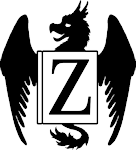A Night in The Lonesome October
Roger Zelazny
William Morrow and Company
Fiction, Humor/Horror
Themes: Anthropomorphism, Avians, Canids, Classics, Country Tales, Cross-Genre, Curses, Demons, Familiars, Felines, Hidden Wonders, Occult, Religious Themes, Shapeshifters and Werebeasts, Small Animals, Vampires and the Undead, Weirdness, Witches and Wizards
***
Description
Full moons have power, as does the night of Halloween. When the two coincide, great and terrible things may happen... depending on who involves themselves, and whether they stand for preserving the world or opening doorways to elder gods who may destroy everything. The dog Snuff, loyal familiar of cursed sorcerer Jack, has been through these events more than once in his long life, but this year's convergence in the English countryside already has unusual hallmarks, drawing all manner of strange characters and their own animal familiars. Before, Jack and his allies have managed to keep the elder entities at bay, but this time, dangerous newcomers are violating nearly every rule and custom to ensure that they fail, and even a loyal familiar like Snuff may not be able to save the day.
Review
This is one of those classics I keep meaning to get to, generally at a more seasonably-appropriate time (this being a very
springlike mid-March, with the novel taking place over the 31 days of October), but it's understandably harder to secure the audiobook
though the library in autumn. In any event, I'm not sure if it would've been notably improved by the proper atmosphere, for while the
prose could be amusing and there are some very interesting and imaginative ideas and images at play, the whole starts feeling less
like its own horror tale and more like a fanfic mashup of various gothic figures familiar from page and silver screen, to the point of
distracting absurdity.
The narrator, Snuff, makes allusions to the histories of himself, his master (who, though never explicitly named, is clearly Jack the
Ripper as well as a very long-lived sorcerer), and the October ritual that may or may not end the world. When not protecting his master
on nightly jaunts for spell ingredients, he's protecting the master from various entities contained in various parts of their home
(such as the "Thing in the Circle" that keeps trying to tempt Snuff to free it by transforming into various exotic lady canines, and
the often-threatening "Thing in the Wardrobe" up in the attic) and keeping an eye on the other local "players" in the coming "game". As
part of the latter duties, he develops professional relationships with the other masters' and mistresses' familiars that range from
friendly to antagonistic; the cat Greymalk, familiar of local "mad" witch Jill, is perhaps his closest friend, even when they realize
that their keepers are destined to stand on opposite sides of the conflict.
At first, Snuff views it all with a certain weary familiarity. This isn't his first supernatural rodeo, after all. But when dead bodies
turn up near his house, a wild card turns up in the form of a neighbor with a wolfish secret who may or may not be a player, and other
oddities (such as a detective and his portly companion poking their noses into things) shake that complacency, Snuff starts feeling his
first sense that maybe master Jack won't come out on the winning side come the end of October. The strongest parts of the story are
Snuff's interactions with his fellow familiars, underlings with their own agendas that may or may not coincide with the humans they
serve. The humans, on the other hand... despite what Hollywood and many comic book "multiverses" seem to insist, there are only so many
disparate "worlds" and rules one can throw together before it just starts getting a bit ridiculous. Here, there's Jack the Ripper,
Count Dracula (who keeps a company of stereotype "Gypsy" followers, not the only trace of unfortunate dating in the book), Sherlock
Holmes and Watson, Larry Talbot (the Wolfman), Doctor Frankenstein and Igor and the Creature, and numerous others I didn't recognize
off the top of my head but which were clearly lifted from other works. They draw too much attention to themselves and clutter the game
board until the game itself is almost an afterthought. As a result, the climax feels weirdly muted, too surreal to even begin to care
about the stakes or who wins or loses, with a bit of a deus ex machina thrown in the middle. The ending just kind of shrugs the whole
thing off with a glib final line that doesn't even fit what we readers were told earlier about the consequences for whoever loses the
contest (not really a spoiler if there's not really a point).
This is the second swing-and-miss for Zelazny for me, so I'm pretty sure he's just not an author I'm equipped to really enjoy, for all
that I can appreciate some of the writing and the concepts. He may be an inspiration to many in the genre, but for me I fear he's just
too dated and not my cup of cocoa.
